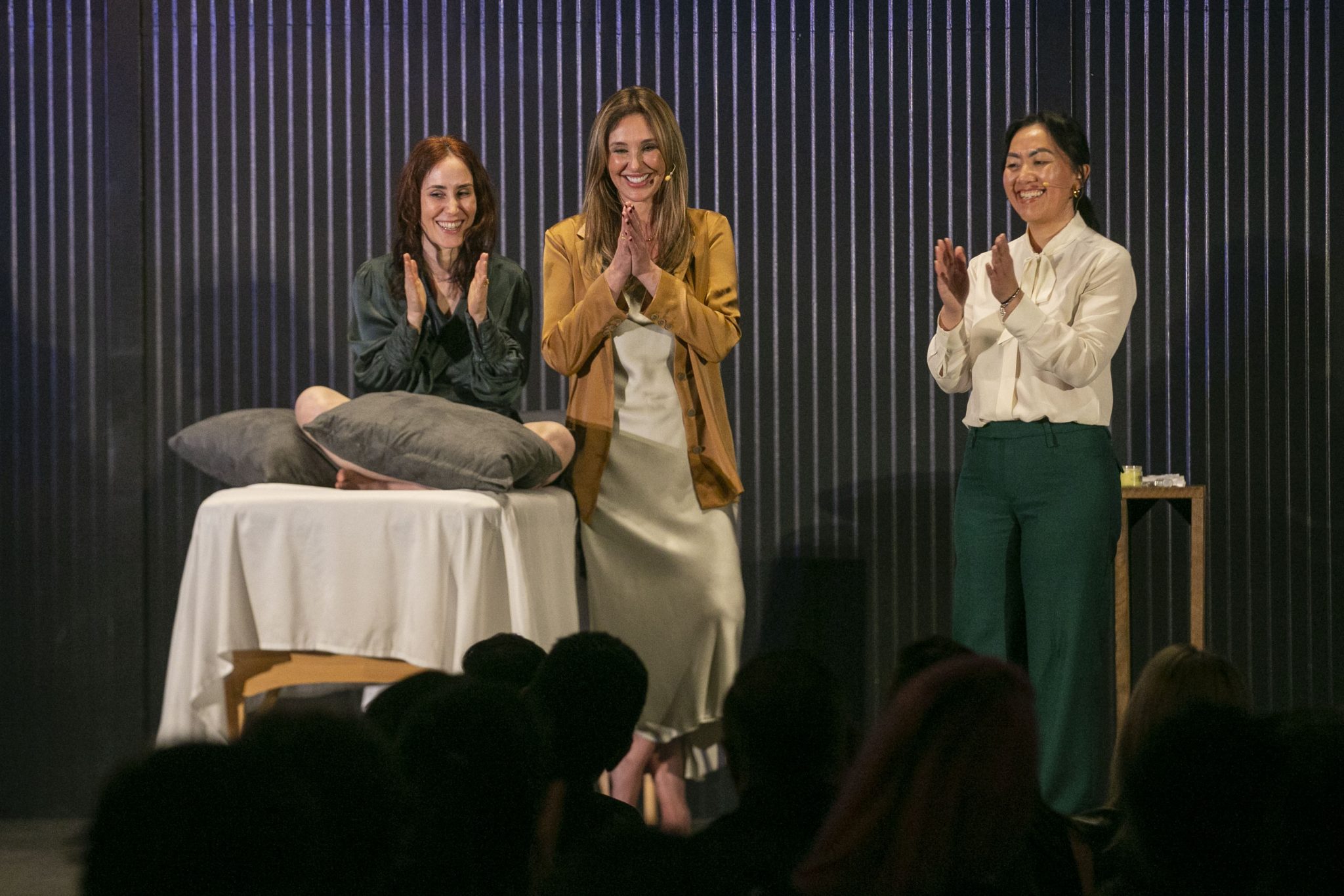During the recent Los Angeles trial of Harvey Weinstein, which just concluded with yet another conviction for him, I had been thinking about how the film industry’s immediate response to his 2020 conviction in New York was to create rules of engagement that set women back by decades. The institutional response was to corral women into fearing our sexuality and shunning it, and believing that by openly wielding our sexual power, we risk making ourselves vulnerable to the Weinsteins of the world.
Women, especially in the entertainment industry, have always used their sexual power to advance their careers. And while some may view this as distasteful, it certainly shows that women have agency. Just as certainly, and distastefully, there have been men who took advantage of women, both the wily and the oblivious, who hadn’t been taught to harness and exercise their innate power.
The institutional mandate adopted by corporations and the media governing speech and behavior – intended to ward off aggressive male expressions of power and sexual desire – has proved problematic, particularly for women. Audre Lorde, the revered Black, Lesbian, poet, and activist, wrote, in her, now classic, 1978 essay Uses of the Erotic: The Erotic as Power, “We have been taught to suspect this resource, vilified, abused, and devalued within western society.” And still, more than forty years later, most women I know feel stifled and shunned when they present themselves as sexual beings only to be cast aside by other women as retrograde and threatening feminist orthodoxy.
The feminist debate today is attempting to tease out the gap between the ideology of sexual liberation and women’s lived experiences. Some women, like reactionary feminist author Louise Perry, propose a retreat to traditional family values, which she views as an escape from an exploitive sexual marketplace that ‘liberated’ sex only then to reenslave women by commoditizing their bodies. Others, such as the uber-liberal writer Nona Willis Aronowitz, author of “Bad Sex: Truth, Pleasure and an Unfinished Revolution,” described an idealized pursuit of sexual experimentation that nonetheless left them wanting deeper emotional connection. But Aronowitz leaves the problem unresolved, stating, “extracting what we actually want from a mess of cultural and political influences can still sometimes feel like an impossible challenge.”
An undercurrent of generational tension flows through the conversations between older, professional women who, according to Aronowitz, “endured pats on the bottom to succeed in the workplace and who urged the movement to prioritize things like women’s economic empowerment rather than sexuality, which they considered frivolous and distracting,” and younger “Twitter feminists,” who are focused on rethinking tolerated behavior – like workplace flirting – and somehow connecting it to rape culture.
What’s entirely missing from the public discourse, however, is the real culprit: western society’s denial and denigration of the Erotic. Eros fuels an essential “resource within each of us that lies in a deeply female and spiritual plane,” conjuring the muse Audre Lorde.
Nowhere is the missed opportunity more apparent than in the pursuits of #Me-too. This critique is not to denigrate the real stories of bravery by women who risked both professional suicide and social condemnation to bring hidden abuse out into the open. Rather it is to point out the failures of #Me-too to transform the conversation into one of empowerment and resourcefulness rather than victimization. Instead of taking the opportunity to infuse true feminine power, #Me-too reified institutionalized feminism deeply codependent on its mortal enemies: misogyny and rape culture. By framing the movement as a sorority of victims, #Me-too came to be defined by the very thing it sought to overcome. After all, to retain its moral salience as a grievance parade, there has to be a Weinstein figure lurking down every side alley waiting to pounce. This protracted state of hyper-vigilance transformed feminism into a trap of its own making – one that ensnared not only its sworn enemies but also those it was obliged to protect.
The irony of it all is that it seems what’s driving the sexual current is not a desire for better sex, or even more liberated sexuality, but a quest for moral supremacy that has at times proven quite destructive of the very cause it is supposedly heralding.

December 6th 2022.
Picture Shows Nicole Daedama founder of “One Taste” at a demonstration of her OM technique in Los Angeles CA. by: Rupert Thorpe
I promote women’s sexual liberation and expression through a practice of clitoral stroking known as Orgasmic Meditation (OM). For a few years, a company I started, OneTaste, ran workshops using that OM practice. Amidst the peak of #Me-too, a business reporter from Bloomberg offered to do a feature on OneTaste as a rapidly growing women’s empowerment company. She was granted unfettered access to our organization. Her story instead cast OneTaste as an abusive sex cult that harmed women, which is the exact opposite of what actually happened at OneTaste. Next week, Netflix releases a documentary, “Orgasm Inc: The Story of OneTaste,” that continues to tell the tale of my so-called “sex cult.”
Netflix’s use of contested footage of OneTaste clients in intimate settings betrays the trust of hundreds of women. And it fails to depict their authentic experiences of joy, growth, and strength gained through OM practice. Many have reported experiencing relief from depression, trauma, and addictions. More than five IRB-approved clinical studies have been conducted which have generated eight articles published in scientific journals so far.
At a moment in history when women’s sexuality is experiencing such forceful institutional backlash – the end of Roe, etc. – it seems ironic that female producers at Netflix would employ the very tools of the ‘master’s house’ against a women-owned and led organization pursuing empowerment. Although OneTaste shut down formal operations over four years ago, the false media narrative proliferates and serves as fodder for the clitoris police.
OneTaste started out as a human laboratory experiment, exploring the dimension, value, and possibility of conscious connection through the practice of Orgasmic Meditation. In those early days, operating out of a warehouse in San Francisco, everyone was in it for the mission; there were no formal employees or assigned roles, and, most critically, no revenue. People volunteered their time and worked outside jobs to support our experiment in connected living. Looking back, it was such a great adventure. A Tedx Talk that I gave in San Francisco in 2011, titled Orgasm, The Cure for Hunger In Western Women, garnered over two million views on YouTube.
In 2018 we had just come off the heels of two years of record growth. We had expanded educational seminars to Los Angeles, New York, and London, and vibrant OM communities began to spring up. But the seeds of our demise were also growing. In late 2017, the words ‘cult’ and ‘Harvey Weinstein’ peaked on Google’s search algorithm as the #Me-too movement rose to prominence and Keith Raniere’s NXIVM organization began to come under intense scrutiny as an exploitive sex cult that allegedly abused and enslaved women.
OneTaste’s transmogrification from media darling to ‘dangerous sex cult’ resulted from a shifting cultural current, not anything OneTaste did to earn the label. We did not start out good and end up evil. The culture initially welcomed an exploration of ideas around women owning women’s bodies, but reflexively recoiled in the face of #Me-too, and then leaned on the all-too-familiar crutch of blaming capitalism and patriarchy for sex. Ironically, our sincere offer of sexual empowerment came to be viewed through #Me-too’s jaundiced lens of exploitation and blame.
Neither patriarchy nor misogyny are existential challenges for us. It’s our own grappling with recognizing and holding our feminine power. We must acknowledge that we wield power; that our connection to the erotic is as powerful as it is considered dangerous.
Welcome to the age of Eros!

